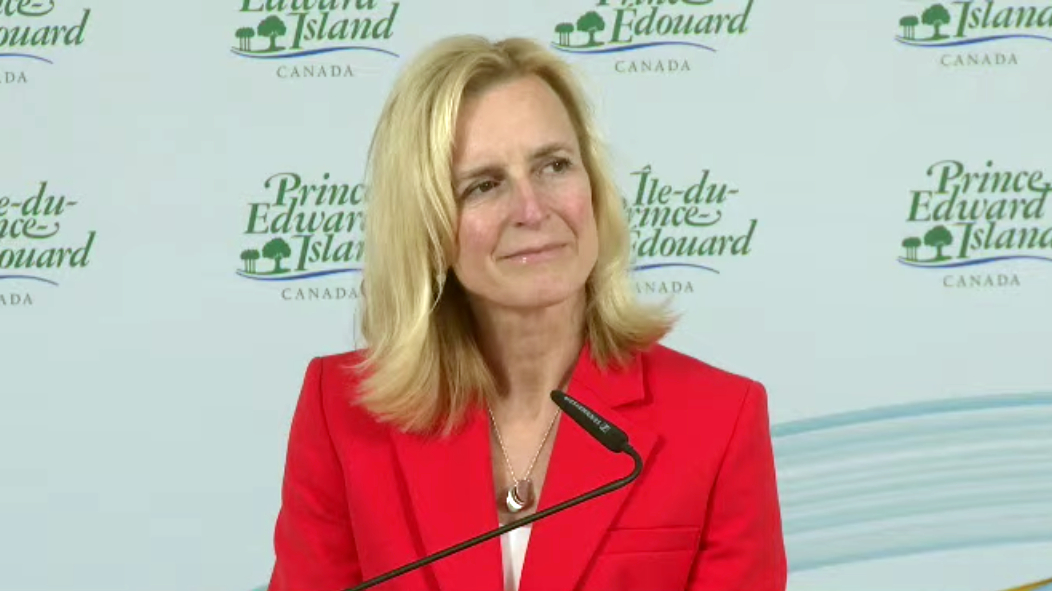P.E.I.’s chief public health officer is recommending that schools in the province remain closed until at least May 11.

“This will be revaluated as we get closer to that date,” said Dr. Heather Morrison in an update on Friday afternoon.
She also advised that non-essential businesses and government services stay closed indefinitely, operating with only essential staff on-site.
READ MORE: Health officials announce 4 new cases of COVID-19 on P.E.I.
As of Thursday, P.E.I. had 9 confirmed cases of COVID-19.
“This is not over,” said Morrison.
Morrison also reminded residents of restrictions to non-essential travel across the Confederation Bridge.
“We continue to see too many people leaving and arriving to P.E.I. for personal reasons,” she said.
Morrison was joined by Premier Dennis King, who said the province has been preparing for the possibility of the extension of school closures.
“Recognizing, of course, that whatever we offer here we know won’t be perfect,” said King.
“But we’re trying to make the best out of a difficult situation to ensure there’s as much learning as possible during this time of uncertainty.”
The province’s Education and Lifelong Learning Minister Brad Trivers is expected to provide more details on the extended closures on Monday.
Questions about COVID-19? Here are some things you need to know:
Health officials caution against all international travel. Returning travellers are legally obligated to self-isolate for 14 days, beginning March 26, in case they develop symptoms and to prevent spreading the virus to others. Some provinces and territories have also implemented additional recommendations or enforcement measures to ensure those returning to the area self-isolate.
Symptoms can include fever, cough and difficulty breathing — very similar to a cold or flu. Some people can develop a more severe illness. People most at risk of this include older adults and people with severe chronic medical conditions like heart, lung or kidney disease. If you develop symptoms, contact public health authorities.
To prevent the virus from spreading, experts recommend frequent handwashing and coughing into your sleeve. They also recommend minimizing contact with others, staying home as much as possible and maintaining a distance of two metres from other people if you go out.
For full COVID-19 coverage from Global News, click here.
- Canadian man dies during Texas Ironman event. His widow wants answers as to why
- ‘Sciatica was gone’: hospital performs robot-assisted spinal surgery in Canadian first
- Canadians more likely to eat food past best-before date. What are the risks?
- Treatment from female doctors leads to lower death rates, study finds





Comments